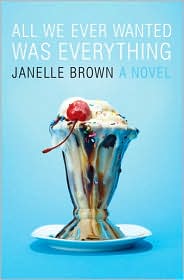
Life After Genius, by M. Ann Jacoby. (New York: Grand Central Publishing, 2008)
Mead Fegley is the kind of kid that other kids love to pick on. He's smaller than average, he lacks social graces, and he's a math genius. He heads off to college after graduating from high school at age 15, hoping that his life will change and that his fellow students will appreciate him for his intellectual talents. He continues to excel academically, but his youth and his awkward ways prevent him from developing real friendships.
This book works very well as a coming-of-age story. Mead is self-centered and introspective, in the way that most children and adolescents are, but his outsize intelligence exaggerates these qualities. He is bright and engaging and even likable in his internal musings, but becomes sarcastic and supercilious when he tries to relate to others. The author capably illustrates the difficulties faced by a child who stands out in a small town. Townspeople invariably categorize him as "the young Fegley genius."
Where the book falters is in Jacoby's treatment of Mead's life as a college student. He works hard and is singled out for academic honors, but he appears to suffer from some delusional episodes. In his relationship with Herman, his academic rival and social superior, the reader is hard pressed to distinguish between what is real and what is not.
I'm a sucker for a great title, but Life After Genius promises more than it delivers. The story is told mostly in flashbacks, after Mead inexplicably leaves college for his hometown a few days before graduation, but the reader never really learns whether or how Mead will conduct his life outside his carefully constructed world of mathematical genius.
While the book is interesting and, in some parts, quite compelling, overall, it suffers from inconsistencies and, perhaps, too ambitious a storyline. Jacoby could have saved some of the plot twists for other books and made this one simpler and more enjoyable. Nonetheless, I recommend it to readers of general fiction.











 A group of young mothers meet in a park in Palo Alto in 1968.
A group of young mothers meet in a park in Palo Alto in 1968.




